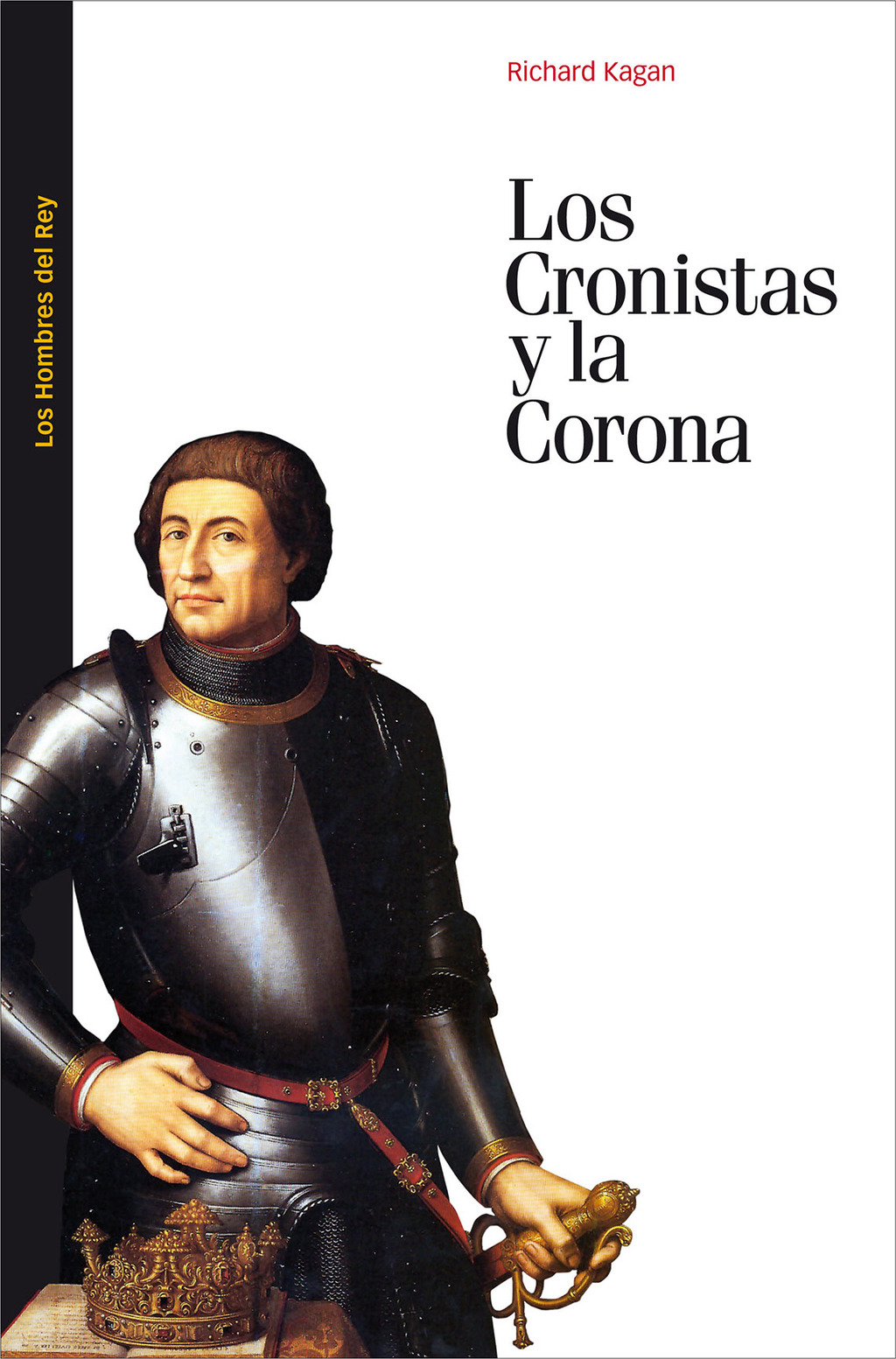Author
Richard L. Kagan
Characteristics
492 pages, 13 black and white illustrations; flapped paperback; 14.5 x 22 cm
Publication
Spanish; Spanish translation by Pablo Sánchez León of the book originally published in English by The Johns Hopkins University Press in 2009 jointly published with Marcial Pons; 2010
ISBN
978-84-92820-32-0
Price
€26,92
Monarchs throughout the ages have commissioned official histories that cast their reigns in a favorable light for future generations. These accounts, sanctioned and supported by the ruling government, often gloss over the more controversial aspects of a king’s or queen’s time on the throne. Instead, they present highly selective and positive readings of a monarch’s contribution to national identity and global affairs.
In Los Cronistas y la Corona, Richard L. Kagan examines the official histories of Spanish monarchs from medieval times to the middle of the 18th century. He expertly guides readers through the different kinds of official histories commissioned: those whose primary focus was the monarch; those that centered on the Spanish kingdom as a whole; and those that celebrated Spain’s conquest of the New World. In doing so, Kagan also documents the life and work of individual court chroniclers, examines changes in the practice of official history, and highlights the political machinations that influenced the redaction of such histories.
Just as world leaders today rely on fast-talking press officers to explain their sometimes questionable actions to the public, so too did the kings and queens of medieval and early modern Spain. Monarchs often went to great lengths to exert complete control over the official history of their reign, physically intimidating historians, destroying and seizing manuscripts and books, rewriting past histories, and restricting history writing to authorized persons.
Still, the larger practice of history writing—as conducted by nonroyalist historians, various scholars and writers, and even church historians—provided a corrective to official histories. Kagan concludes that despite its blemishes, the writing of official histories contributed, however imperfectly, to the practice of historiography itself.
Richard L. Kagan is Arthur O. Lovejoy Professor Emeritus of History and Academy Professor at the Johns Hopkins University. With degrees from Columbia University (BA) and Cambridge University (PhD), he is a member of the American Philosophical Society, Corresponding Member of Spain’s Real Academia de la Historia, and Comendador in Spain’s Orden de Isabel la Católica. Kagan has published essential studies on Habsburg Spain and its overseas empire, as well as Spain’s artistic and cultural relations with the United States. He has also written and edited important works such as Ciudades españolas del Siglo de Oro: las vistas españolas de Anton Van den Wyngaerde (1986); Spain, Europe and the Atlantic World (with Geoffrey Parker; 1995; Spanish edn. 2001); Atlantic Diasporas: Jews, Conversos, and Crypto-Jews in the Age of Mercantilism, 1500–1800 (with Philip D. Morgan, 2009), and is the translator and editor, with Abigail Dyer, of Inquisitorial Inquiries: Brief Lives of Secret Jews and Other Heretics (2011).

